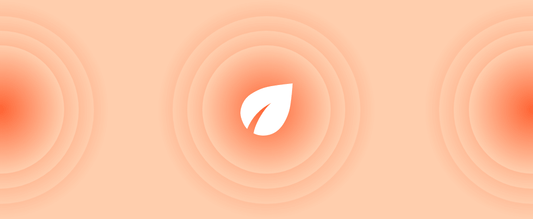Sugar & ADHD - Debunking the Myth
Read time 5 mins
In recent years, there has been a pervasive belief that sugar consumption is linked to ADHD. This myth has circulated widely, both via the media and anecdotally. This has led many people to examine their diets. Many have blamed sugar for behavioural issues and hyperactivity in children and adults.
However, a closer inspection reveals that the link between sugar and ADHD is not as straightforward as previously believed. In this article, we will look in more detail at the links between diet and ADHD.
The sugar and ADHD myth stems from several misconceptions. One of the primary fallacies is the belief that sugar consumption directly leads to hyperactivity and inattention. It is true that sugar can give you a quick energy boost. However, many studies have not found a direct link between eating sugar and showing symptoms of ADHD.
In fact, a study published by the Journal of the American Academy of Child and Adolescent Psychiatry (1)
concluded that sugar does not affect the behaviour or cognitive function of children with ADHD brains any more than it does for any other child.
Sugar Addiction
Furthermore, linking sugar addiction and ADHD adds another layer of complexity to this myth. Some people believe that sugar addiction can contribute to ADHD symptoms. This addiction involves cravings and withdrawal symptoms like substance abuse. Dr Nicola Averna explains this interaction in more detail between sugar and the brain during her acclaimed TED Ed talk (2).
These symptoms may affect how ADHD presents in individuals. However, the evidence supporting this claim is scarce and inconclusive. It is true that some people may experience cravings for sugary foods or soft drinks with high sugar content. However, attributing ADHD solely to sugar intake oversimplifies the multifaceted nature of the disorder.
The Sugar Myth
Even though there’s no scientific evidence that sugar impacts ADHD, the myth persists. Sensational media reports suggesting that sugar causes hyperactivity partly fuel this. It's easy to see the appeal of a quick-fix for a complicated condition like ADHD. However, relying on simple solutions can actually get in the way of truly understanding and effectively managing the condition.
Attributing ADHD symptoms to sugar can lead to stigma and misinformation. This can cause unnecessary feelings of guilt and shame for those affected by the disorder and their loved ones. Instead of blaming sugar, it's important to address ADHD with understanding, empathy, and a focus on research-based treatment.
Moreover, vilifying sugar overlooks the broader context of dietary habits and their influence on mental well-being. Excessive sugar consumption can lead to health problems like dental issues and obesity, but it is only one of many factors. Eating a balanced diet with plenty of nutrients and supporting this with the right food supplement is important for overall health. However, it is not a cure or prevention for ADHD.
Joe Wicks' Comments on ADHD
For those outside the UK who may not be aware of his work, Joe Wicks is a health and fitness expert. He has done extensive work helping both adults and children to lead more heathy lives. During the pandemic, millions of people viewed his daily YouTube workouts, and he received an MBE for his work.
However, he recently made a comment that sparked some controversy. Speaking on the BBC 5Live Headliners podcast, he said
‘I was never diagnosed with ADHD but I think nowadays it's this common thing that every child seems to be being diagnosed, and I think a lot of it can stem back to the diet and the foods that we're eating. So, when I think about my diet it was cereal for breakfast, concentrated juice from the milkman, Sunny Delight, Wagon Wheels, sandwiches just jam, Nutella, very little nutrients - pure sugar.'
Understandably, people were upset with the comment and spoke out against the misinformation. One such person was Jess Joy, ADHD’er and co-founder of neurodivergent Instagram community, I Am Paying Attention. Writing for Women's Health she commented:
‘Intentional or not, I fear that Wicks’ comments feed into a narrative that the neurodivergent community is not enough, in a society that largely refuses to acknowledge our struggles.’
Her article expressed frustration with Joe's comments. She referenced the lack of factual evidence linking sugar consumption with ADHD. She also talked about the more complicated dietary issues for those with ADHD.
In her article, she discussed that it is common for those with ADHD to have sensory issues around food. This can mean that they prefer to stick to ‘safe’ foods, which may be ultra-processed or contain high amounts of sugar or complex carbohydrates. The appeal of these foods is that they do not vary in taste or texture, unlike foods such as fresh fruit or vegetables.
Additionally, people with ADHD can find the preparation of nutritious, home-cooked meals challenging. This can be because they find the steps in a recipe overwhelming. Also they may not have the energy or focus required to cook a meal from scratch.
It is important to note that Joe Wicks has since apologised for his comments. He acknowledges that ADHD is linked to a number of different factors, not just diet. He still maintained, however, that eating a balanced diet does impact mood, energy levels, and mental health, whether you have ADHD or not.
Managing ADHD positively
It is not fully understood what causes ADHD, however research suggests genetic, environmental, and neurobiological factors play a part. Genetics play a significant role, with studies indicating that ADHD tends to run in families. Other factors such as exposure to toxins during pregnancy or early childhood, or the structure of an individual’s brain can also contribute to the likelihood of having ADHD.
Whilst diet plays an important part in ADHD management, and a person’s wellbeing in general, there are plenty more things to consider when it comes to managing ADHD symptoms effectively.
ADHD Medication
Stimulant and non-stimulant medications are commonly prescribed to manage ADHD symptoms. They work by increasing neurotransmitter levels in the brain, improving focus, attention, and impulse control.
Exercise
Regular physical activity, such as aerobic exercise and strength training, can improve attention, mood, and executive function for those with ADHD by increasing dopamine and norepinephrine levels in the brain.
Sleep
Sleep is hugely important for individuals with ADHD. Maintaining a consistent sleep schedule, limiting screen time before bed, and creating a relaxing bedtime routine, can all help improve attention, mood, and cognitive function. For more on bedtime routines that can help ADHD read our article here.
Mindfulness and Meditation
Practices like meditation, deep breathing exercises, and progressive muscle relaxation can help reduce stress, improve self-awareness, and enhance emotional regulation if you have ADHD.
Conclusion
In conclusion, the myth that sugar consumption is linked to ADHD is not supported by scientific evidence. While it's crucial to encourage healthy eating habits, attributing ADHD symptoms solely to sugar oversimplifies the complexity of neurodevelopmental challenges.
Instead of focusing on simplistic explanations and quick fixes, we must embrace a fully-rounded understanding of ADHD. It's important to acknowledge its multifactorial nature and support evidence-based interventions and support for individuals living with ADHD. By debunking misconceptions and promoting accurate knowledge, we can strive for a more enlightened and empathetic approach to ADHD.

Dopamine Supplements: Nutrients for Focus and Motivation
Read time 10 minutes

Magnesium and ADHD: What the Research Says About Focus and Mood
Read time 10 minutes

The Role of Nutrients in ADHD Management for Women
Read Time 4.5 mins






